2023 Reading Wrap Up
Hey there! Welcome to my blog - Stories So Wild. I'm Nisha.
In this post, I'll briefly review every book I read in 2023. This post is completely spoiler-FREE!
This year has been an exhilarating time regarding my reading journey. I have expanded my reading pastures and explored new horizons. So, without further ado, let's dive right into my 2023 reading wrap-up. In no particular order, here are the books I immersed myself in, in 2023.
(psst...check out book 17 to read about THE BEST BOOK of 2023!)
I have rated these books on a scale of ⭐ to ⭐⭐⭐⭐⭐; with 1 being the least liked book and 5 being the most liked book -
1) Kumarasambhavam by Kalidasa
If you know me, you know I love reading ancient literature - be they holy texts or epics or ancient plays. One such play that I started my 2023 with, was Kumarasambhavam by Kalidasa.
This was my very first book by Kalidasa - the ancient Sanskrit writer-poet - who is believed to have lived sometime in the 4th or 5th Century CE. Kumarasambhavam is a fictional narrative, exploring the blossoming love between Shiva and Uma (Parvati) - ultimately culminating in their marriage and their very first love-making experience.
Kumarambhavam has had a pivotal impact on Hindu religion - to the point that this book has inspired many tales in the Shiva Purana (not the other way around!). I loved how Kumarambhavam helped me explore India's development and treatment of her women, through the lens of the Uma-Sati story. The language was tender and I can only imagine how beautiful the original Sanskrit might have been.
The text in this copy of the Kumarambhavam ends with the honeymooning of the Gods. That's because experts believe that Kalidasa only wrote till this section in his lifetime. There are more sections after this part. But, dating techniques and linguistic analysis tell us that the later parts of the book - chronicling the birth of their first son, the god Kumara; and his youth - have actually been written by other authors mimicking Kalidasa.
You can watch my detailed review of Kumarambhavam here and learn more about the text.
(Format: Physical book)
2) Children Of Memory by Adrian Tchaikovsky
2022 was the year of my introduction to science fiction. I just stumbled upon Adrian Tchaikovsky's Children of Time series on Audible - a trilogy exploring what life might look like if humans end up destroying the Earth.
Intrigued by the plot, I downloaded the first book - Children of Time - and then quickly devoured the second book - Children of Ruin.
This year, I completed the third and final installment in the series - Children of Memory. While this book was 'meh' as a standalone novel, it made a really powerful finale to the trilogy. What really struck me, was how Children of Memory was the most realistic of all three 'Children' books - and therefore, the most disheartening.
This book brings to a close a millennia-long post-apocalyptic saga centered around the search for a new home planet - a new Earth. After finishing Children of Memory, I was left feeling dejected and hopeless - but also with a renewed sense of purpose towards my beloved planet.
You can watch my video review of Children of Time, Children of Ruin & Children of Memory over here. (P.S: The trilogy series is much better than this stand-alone third novel.)
(Format: Audiobooks)
Rating: ⭐⭐⭐
3) Of Blood And Bones by Kate Freuler
I have always been interested in spirituality - as it is expressed in all forms. The occult arts, in particular, have held a strong fascination for me. Of Blood and Bones by Kate Freuler is one such book on the occult and witchcraft - specifically about the magick of death, dying and the spirits from the other world.
I really enjoyed this book, as it gave a new perspective that made death as a concept and as an occurrence, seem friendlier and less scary. Reading about the diverse practices of magick that practitioners performed using death energy - through vegan, vegetarian and animal remains - in North America, was extremely interesting.
I also understood better what death energy can represent in terms of ending negative situations, clearing away stuck energy and removing energetic/spiritual blockages that affect us each day. This is definitely a read that is 'out there' and one that witchcraft practitioners and those interested in spirituality will enjoy.
(Format: Physical book)
Rating: ⭐⭐⭐
4) Speaking To An Elephant: And Other Tales From The Kadars by Manish Chandi
I love the publisher, Tara Books. They make illustration-based books and storyboards of the highest quality. I have a number of their works at home - one of them is Speaking to an Elephant: And Other Tales from the Kadars by Manish Chandi.
This simple and delightful little work contains various folk tales and indigenous beliefs of the Kadars - a Scheduled Tribe who live in the hilly region of Tamil Nadu and Karnataka, in Southern India. The book is fully illustrated by Matthew Frame and brings to life the forest of the Kadars, from the eyes of a herd of elephants. These illustrations have stayed more with me, rather than the story itself.
I believe this will be a great addition to both children's and adult libraries alike. It also makes for a delightful gift for elephant lovers. Tara Books ships internationally too, so you can quite literally get these books no matter where you are.
You can see a flip-through of the book here.
(Format: Physical book)
Rating: ⭐⭐⭐⭐
5) Walking Is A Way Of Knowing: In A Kadar Forest by Madhuri Ramesh and Manish Chandi
Another Tara Books acquisition and read this year was, Walking is a Way of Knowing: In a Kadar Forest by Madhuri Ramesh and Manish Chandi, illustrated by Matthew Frame.
This little gem too has a special place in my heart - with both the stories and illustrations bringing the forest of Southern India to life. We walk with a member of the Kadar community, through the forest - a land with thousands of years of memories and learnings for the Kadars. We understand the heartbeat of the trees, the songs of the animals and the whispers of the waters. We see what the Kadars see, when they look at these forests - a place of healing, of nourishment, of entertainment and of love.
The conversations between the authors and the Kadars in this book, are so poignant and they will certainly stand out in your mind for long. The illustrations show us what a day in the life of a forest-dwelling Kadar looks like.
This is another brilliant addition to children's and adult libraries. You can see a flip-through of the book here.
(Format: Physical book)
Rating: ⭐⭐⭐⭐
6) The Tenant of Wildfell Hall by Anne Brontë
I had always wanted to read the works of the Bronte sisters. In 2022, I read Jane Eyre by Charlotte Brontë and enjoyed it. So, this year, I decided to read another Brontë - and found The Tenant of Wildfell Hall by Anne Brontë on Audible.
I must say that I really enjoyed this book. Of the two Brontë sisters, I think Anne is definitely the writer I resonate with the most. While Jane Eyre was emotional, it lacked the real-world grittiness that is present in The Tenant of Wildfell Hall. (Also, its sister book - Wide Sargasso Sea - really put me against the Jane Eyre narrative, reducing the enjoyment I received from it.)
I found The Tenant of Wildfell Hall to represent themes and topics that women face even today. The realities of a woman's experience of existing in this world, have been explored beautifully, tragically and ultimately, hopefully.
Now, I only need to read Wuthering Heights by Emily Brontë and I can decide whether Anne and The Tenant of Wildfell Hall still hold the top spot in my heart or not
(Format: Audiobook)
Rating: ⭐⭐⭐⭐⭐
7) Lapvona by Ottessa Moshfegh
Lapvona by Ottessa Moshfegh is set in medieval times, in a fictional village that goes by the name of "Lapvona". I listened to this book on Audible and that's probably one of the reasons why - the other being the lyrical quality of the writing - this book felt ethereal.
The people of Lapvona come in all shades of grey - just like the murky waters of their drying and polluted river. The story explores the stark difference between the uber-rich and the sickly poor who live side-by-side in Lapvona. Many incidents that take place in the narrative - and the justifications for or against them - really make you question your own mortality as a reader. The finale too - although a bit predictable - is the most confronting of all.
I really enjoyed the first 75% of the book, but the last 25% was weak. My sister - who has read other books by Ottessa Moshfegh (My Year of Rest & Relaxation; Eileen) - told me that the author seems to have trouble writing endings to books since the other books have the same problem I experienced with Lapvona.
But overall, this book definitely was a refreshing addition to my 2023 reading list and does deserve a listen. You can watch my review of Lapvona here.
(Format: Audiobook)
Rating: ⭐⭐⭐
8) The Great Gatsby by Scott Fitzgerald
As someone who used to exclusively read classics until a few years ago, it defies my own understanding, why I had never picked up this contemporary classic till now. But I decided that 2023 would finally be the year I gave good old Fitzy a shot and so, I read The Great Gatsby.
While I definitely appreciated understanding the nuances of the Roaring Twenties and the futility of the American Dream, I did feel The Great Gatsby is an overrated and overhyped book. I found the characters too shallow, with not enough to recommend them. The story too is quite flat and just not enough to earn it the moniker of "one of the greatest literary works of the 20th Century".
(Format: Audiobook)
Rating: ⭐⭐
9) Karna’s Wife by Kavita Kane
I love exploring the epics from the lens of less-known, sidelined and invisible characters. A few years ago, I had read Kavita Kane's book - Sita'a Sister - and found it a good one-time read. So, I decided to pick up another book by the same author - this time, Karna's Wife.
Karna's Wife narrates the Mahabharata from the perspective of one of Karna's wives - Uruvi. Now, I don't know if Uruvi is a character created specifically for this book or if the Mahabharata actually states that she was Karna's Wife. But, the story follows Uruvi's birth, her youth, her Swayamvara, her marriage to Karna, her relationship with the Kauravas and her life after Karna's death.
Reading Karna's Wife strengthened my opinion about Kavita Kane being a mediocre writer. Although the book was an interesting POV, it wasn't captivating or memorable. However, in saying this, I do think we need more such books that explore marginalised narratives - perhaps by a different author who can do it more justice. (I highly recommend "After Kurukshetra" by Mahasweta Devi).
(Format: E-book)
Rating: ⭐⭐
10) The Skeleton’s Holiday by Leonora Carrington
11) Hurricane Season by Fernanda Melchor
Hurricane Season by Fernanda Melchor is one of the two books on my list, whose recommendation I sourced from numerous Bookstagram and Booktube accounts. I had heard many people either raving about this book or ranting against it.
For good reason.
Hurricane Season starts with the brutalization and death of a woman. It then spirals into an abyss of violence that is absolutely sickening, but very very realistic. The book is told through multiple POVs - where each character is either directly or distantly related to the murdered woman. The book is replete with curse words and is basically a compendium of trigger warnings. (You can see what these triggers are, in my video review of Hurricane Season.)
I had read an interview with the author, Fernanda Melchor, where she mentioned that Hurricane Season was her way of inverting the common literary trope of 'how men write women'.
Just as male writers write women characters as men experience them (or what they expect women to be like); Fernanda Melchor's Hurricane Season explores how women experience men and the male presence - both in their personal lives and out in society.
I found the book true in its depiction of male violence and male power over women in many instances. In particular, the societal grooming of young boys to display "masculine traits" that lend to displays of violence, is very realistic and frightening.
However, the excessive use of less-than-flowery language and the long, drawn-out sentences with no period/full-stop in sight, made this book stressful to read. Even the Audible narration - which does credit to the prose - was feeling claustrophobic.
Hurricane Season is certainly not for everyone. This noir tale is an acquired taste.
(Format: Audiobook)
Rating: ⭐⭐⭐
12 & 13) Mahabharatha (Volume 2 and Volume 3)
If you have followed my YouTube channel, you will know that I am currently doing a multi-year readathon, of the BORI Critical Edition of the Mahabharatha. In 2022, I finished Volume 1 of this 10-book series and started reading Volume 2 at the end of 2022. 2023 saw me completing the remaining 60% of Volume 2 and the entirety of Volume 3.
The core story of this series is familiar to many - it is a battle for land and power between two groups of brothers, the Pandavas and the Kouravas. The BORI Critical Edition is the oldest version of this epic, vetted and compiled by a panel of over 120 linguists, historians, anthropologists and academics. This BORI edition of 10 books is extremely nuanced and offers an in-depth look into the Hindu mythos.
I won't go ahead and talk much about what's in these books - that actually requires an article of its own. Perhaps I will write a book-by-book review of the BORI Mahabharata soon, on this blog. But, till then, you can check out my BORI Mahabharata Critical Edition Readathon Playlist on YouTube to see the reviews of the first three volumes.
Now I am in the final 30% of Volume 4 and hope to start Volume 5 in Jan 2024. Wish me luck, I have a long way to go.
(Format: Physical Book)
Rating: ⭐⭐⭐⭐⭐
14) Kitchen Table Magic by Melissa Cynova
Another witchy read this year was Kitchen Table Magic by Melissa Cynova. I read her book, Kitchen Table Tarot, last year and decided to try this new book in 2023. I enjoyed the author's approachable approach towards tarot and felt the same technique reflected in Kitchen Table Magic too.
This book was an introduction to witchcraft and spellcasting in a humorous and easy-to-understand way. I liked the way Melissa Cynova used down-to-earth analogies and examples to describe magickal practices, which would be familiar to most people. There was also a section on indigenous North American witchcraft practices, which was very interesting to learn about.
However, I did find that Kitchen Table Magic tended to assume that readers were familiar with certain concepts - such as how correspondences worked or which crystals leave toxic residue when cleansed/charged with water, etc. - and skipped over some of the introductory information that is mandatory for beginners. So, this book, although an easy read with a lot of information, does leave things to be desired. I would rather peg this book for an intermediate practitioner.
(Format: E-book)
Rating: ⭐⭐
15) The Picture Bride by Lee Geum-yi
The Picture Bride by Lee Geum-yi was the second of the two books that I found through Bookstagram and Booktube. The book is set in the early 1900s and follows three Korean girls, as they are put through the arranged marriage practice of "Picture Brides". Here, a girl's picture is sent to prospective grooms overseas and the groom chooses which photo he likes best. Then, a sort of mail-order bride arrangement is negotiated and the groom pays for the girl's passage abroad and their wedding once she arrives at his home.
What attracted me to this book, was how similar I felt the premise was, to arranged marriage traditions in India - especially in the period before the 2000s. The grooms overseas, marriage brokers acting as intermediaries, using only photographs to decide whether to marry someone and the leap of faith millions of brides took as they followed a stranger onto even stranger lands. I wanted to understand what the experiences of women in Korea were like and whether they matched the experiences of our mothers and grandmothers in/from India.
The first 70% of the book is very interesting, as we follow three separate storylines and find out how our three Korean picture brides fared in life. It was also interesting that the backdrop of the story is Hawaii and we can learn a bit about life on plantations on the islands (powered sometimes almost exclusively by East Asian immigrants).
However, the last 30% seemed to lose its thread. One of the main climaxes of the book was left half-baked in its execution and it felt like perhaps Lee Geum-yi did not know how to continue the story. So, although I have mostly positive memories of this book, it did not meet the hype surrounding it online.
(Format: Physical Book)
Rating: ⭐⭐⭐
16) Divya by Yashpal
Divya is a book that I am delighted to have just stumbled upon in 2023. It turned out to be one of my most interesting reads and introduced me to a new Indian author - Yashpal Singh.
Yashpal Singh - born in 1903 - was a Hindi-language writer, social activist and political commentator, who was imprisoned by the British for 6 years, due to his involvement in the Indian Independence Movement. Yashpal's works have a strong flavour of revolutionary thinking - of defying conventions and introducing new ideas. He was also a vocal feminist, often crafting very strong and independent female characters in his books and writing about causes important to women. His work, Divya, is considered one of the preeminent feminist pieces of literature from India.
Divya is set in the 1st Century CE and follows the life of the protagonist Divya. An adolescent girl caught in the web of first love, Divya becomes a victim of society's patriarchal scorn. With no choice but to try to make her own way in this world, Divya becomes a celebrated court dancer in another kingdom. As her renown grows, her new life gets entangled with her old life and things come to a head.
I really enjoyed how Yashpal does not shy away from calling out the authorities of society - religious heads and royalty - who subject women to laws and rules that are completely inhumane. Yashpal derides the double standards within religion - interestingly he also calls out the toxic patriarchy in Buddhism and its emotional violence on women - and makes Divya take a courageous stand to lead life on her own terms.
Although the final choice Divya makes in this book is one that I could not get on board with, ultimately as a reader, I too respected her agency. This is definitely one of my most memorable reads of 2023.
(Format: Physical Book)
Rating: ⭐⭐⭐⭐
17) Outside The Fold: Essays On Untouchables And Untouchability by Dr. B.R. Ambedkar
If there is one standout book on my list - THE BEST BOOK OF 2023 - it has to be this one - Outside the Fold: Essays on Untouchables and Untouchability by Dr. B.R. Ambedkar.
I found out about this book through a publisher called Panthers Paw Publication, which specialises in Dalit literature and Dalit authors. Since I started reading the BORI Mahabharata, I became more cognizant of the blatant casteism in the epic - and how such casteist behaviours and Brahminical hegemony has passed down through the millennia. So, I wanted to expand my reading horizons in 2023 by educating myself more about caste and the anti-caste movement.
When I came across Panthers Paw Publication on Instagram, I reached out to the publisher - Yogesh Maitreya - and asked him to recommend a book for the complete beginner. He recommended this one.
Outside the Fold is an anthology of 13 essays written by Dr. B.R. Ambedkar, about the practice of untouchability and the Dalit experience. Each essay takes us systematically through the caste experience and the life of people who fall outside the fold of caste - the untouchables. We explore caste and untouchability through the lens of religion, mythology, economics, patriarchy, violence, education, access to resources & opportunities and the "liberal upper caste".
I learned so much from this book and for a long time after I finished, my faith in my (Hindu) faith was completely shaken. As someone who is a Brahmin, I acknowledge that I have experienced the benefits and privileges of my caste, although financially I am middle-class. It took the reading of this book to consciously understand what these privileges look like - because it isn't always financial in nature and it pervades every area of our lives.
Today, Outside the Fold: Essays on Untouchables and Untouchability has firmly found its place in the Top 3 Books To Read In Our Life List. I think every Indian, South Asian and NRI savarna must read this book. It is not just a book, it is a force to be reckoned with. If this book does not change your perspective and your thoughts, I don't know if anything ever will have the power to do so.
You can watch my video review of this book here. You can buy this book here:
Panthers Paw Publication
Founder: Yogesh Maitreya
YouTube channel - @pantherspawpublication8693
Instagram handle (DM to buy) - @pantherspawpublication
Mobile number on Google Listing - 9987133931
(Format: Physical Book)
Rating: ⭐⭐⭐⭐⭐
18) Sweet Bean Paste by Durian Sukegawa
I happened to stumble upon Sweet Bean Paste by Durian Sukegawa in Audible's Plus catalogue - the collection of free audiobooks and podcasts by Audible. Given its short, under 6 hours length, I decided to listen to this book and flew through it in three days.
Sweet Bean Paste by Durian Sukegawa is an ode to old age and Doriyaki (a Japanese sweet delicacy). It follows the lives of an old woman named Tokue and a young man named Sentaro, as they forge an unlikely friendship while working in a Doriyaki shop.
The story really touched me, bringing to the fore society's toxic obsession with people being useful and productive. But what makes someone "useful" or "productive"? How do we judge a person's worth? And if someone were to not meet society's standards of productivity, does that mean such a person does not deserve to live or be part of that society? Such important questions were addressed by this book - short in length, but limitless in scope.
I did hear some criticisms about this book, about how Tokue's journey was used as a crutch to tell Sentaro's tale - a woman's life relegated to the background to make a man's life seem worthwhile.
While I do think some part of this criticism is true, on the whole, I still feel like this was a wholesome book. Mainly because, to me, Tokue was the protagonist of this novel and not Sentaro.
(Format: Audiobook)
Rating: ⭐⭐⭐
19) Radhika Santawanam by Muddupalani
Radhika Santawanam by Muddupalani is the second older Indian literature on my list, apart from Kumarasambhavam.
An erotic poetry written by celebrated 18th Century court dancer and royal muse, Muddupalani, Radhika Santawanam explores what the romantic and sexual relationship between Krishna and Radha might have been like. (However, this text is also believed to reflect the relationship between Muddupalani herself and the reigning king of Tanjore at that time, Pratapasimha.)
So erotic and entertaining was this book, that during Muddupalani's own time, it was considered one of the greatest literary works in Southern India. But, after her death, the same erotica was considered extremely scandalous and the book was banned for 150 years by conservative Brahmins and the British rulers. It was only by the sheer will and determination of a woman named Nagarathnamma - who fought to get this book unbanned - that Radhika Santawanam was able to get into the hands of readers again after India's Independence.
I really enjoyed reading Radhika Santawanam. The book starts out with young Krishna and an older Radha. We see how playful and flirtatious their relationship is. Then we see Krishna getting married to Ila, his cousin - an event that is supported by, but which also breaks the heart of, Radha. We then become privy to Krishna and Ila's lovemaking - which drives Radha to severe depression. Finally, sensing Radha's pain, Krishna goes back to her, seeking her mercy and love. We end Radhika Santawanam with a really sensual and rich description of Radha and Krishna's lovemaking - told with immense elegance and beauty. This is a tale as old as time - but it is for the poetry that you should read this book.
I learned a lot about the rites of menstruation and marriage followed in 18th Century India. It was also exciting to read about the various "arts of lovemaking", which we may not typically see in Indian/Sanskrit classics that are popular in the mainstream.
I also faced moments of moral ambiguity while reading, especially around themes of extramarital affairs, sexual relationships with minors and the double standards Hindus exhibit while simultaneously celebrating Radha-Krishna's romance as they condemn other real couples-in-love in their own lives, in the same breath.
I had a lot of thoughts about this book, which you can hear about in this review on YouTube.
(Format: Physical Book)
Rating: ⭐⭐⭐⭐⭐
20) The Blue Women by Anukrti Upadhyay
21) First There Was Woman And Other Stories Of The Dungri Garasiya Bhils by Marija Sres
Marija Sres, an Eastern European woman, came down to India in the late 1900s and worked as a nun in the state of Gujarat. She was dispatched by the Church to the region of Gujarat which was home to the Dungri Garasiya Bhil tribe. There she was responsible for helping the women and young girls of the Dungri Garasiya Bhils, through education, domestic support and medical care.
It was her 40 years long life with them and amongst them, that led Marija Sres to compile the folklore and folk tales of this little community in the form of this book - First There Was Woman And Other Stories Of The Dungri Garasiya Bhils.
First There Was Woman is a beautiful little book, featuring various traditional tales that were (till then) passed down orally from mother to daughter in the form of song. As a scheduled tribe community, the Dungri Garasiya Bhils hardly, if ever, receive much attention. As the introduction states, native-born literati in Gujarat had not even considered recording their folklore and beliefs, until Marija Sres decided to do so.
Each tale in First There Was Woman richly showcases the love that the Dungri Garasiya Bhils have for nature. Their lives are enmeshed with the Earth and depend wholly on her charity and caprices for survival. I really loved reading these delightful tales of ghosts, talking animals, guardian snakes and complicated humans.
First There Was Woman And Other Stories Of The Dungri Garasiya Bhils opened up my understanding of Gujarat and India, through an indigenous lens that I was unfortunately uneducated about till now. You can watch the video review of this book here.
You can purchase this book directly from Zubaan Books - an independent publisher championing women writers, queer authors and marginalised groups.
(Format: Physical Book)
Rating: ⭐⭐⭐⭐
22) The Distance Of The Moon by Italo Calvino
The Distance Of The Moon was my first ever read by author Italo Calvino. A strangely enchanting and ethereal read, this book transports us into another dimension based within the Earth, the moon and the rest of the universe.
This Penguin Modern Classic is a tiny read with just 4 short stories. It was another book I sourced from my sister's boxed set collection. We start and end our journey in space - possibly amongst extraterrestrials or humans who don't resemble anything like us.
There is such a strong ephemeral quality to these books. Like stardust, these stories exist in a world where time moves at a glacial pace, where colours form conundrums and where familiar things start to look obscure. It is so hard to peg what this book and these stories are actually about. But I tremendously enjoyed reading them. They were absolutely beautiful and completely disconnected from reality.
If you like a science fiction book which is strange even for this genre, then Italo Calvino's The Distance Of The Moon should be on your reading list.
(Format: Physical Book)
Rating: ⭐⭐⭐⭐
23) East Lynne by Ellen Wood
East Lynne by Ellen Wood was a thought-provoking classic set in the mid-to-late 1800s. It follows the life of a young and innocent girl, Isabel, as she confronts the devastating consequences of choices that were both, made for her (by others) and made by herself.
This book ends on a very sad note. It casts a sharp light on the plight of women who have no choice but to depend on the fortitude or fickleness of their male relatives, for the sustenance of their body, mind and soul. We see Isabel pushed along by the tides of a life that she has no control over, only to gain control at a time when she makes a disastrous choice whose ill effects leach onto her like a lusty shadow.
There is a lot of moralizing in this book - I am only thankful that Ellen Wood did not cast the entire blame on Isabel but reserved some of the best paragraphs to bemoan the patriarchy - which ultimately was the source of all the problems.
Simultaneously, we are cast head-first into the heart of a murder mystery, where the accused may or may not be the real killer. As far as the noir aspect of the book goes, East Lynne is quite predictable. Halfway through the book, you will most likely have guessed who the real murderer is. But seeing how his story progresses and what damage he wrecks on the lives of many innocent people, will certainly make your blood boil.
(Format: Audiobook)
Rating: ⭐⭐⭐⭐
24) The Attic Child by Lola Jaye
Most books featuring the sordid history of the African slave trade and the black experience in the UK and North America, show black characters in an unflattering light. They are either poor, uneducated and victims of harsh circumstances or they are violent, uncontrollable and always resorting to crimes in a civilized society. These tropes are frankly, tiring and untrue.
Thankfully, Lola Jaye's The Attic Child seeks to change the narrative of the "African Savage" and the "Poor African". This book follows two distinct narratives, separated by almost a century. We hear from Dikembe, a child taken from the Congo to the UK by an Englishman, under the justification of "providing him a better life". We see how Dikembe's life unfurls in a new land that does not understand him, that does not want him and which would rather see him fail (or better yet, die).
A century later, a little girl named Lowra lives in the same house that Dikembe was brought to all those years ago. We also see how Lowra's life unfolds, spent in a dusty and dark attic where both children spent most of their childhood lives.
The Attic Child is certainly a heartbreaking story about abuse, child kidnapping and slavery. But, it is also a story about resilience, hope, solidarity, community and success. We follow both Dikemeb and Lowra into their adulthood, as they navigate the challenges life throws at them and succeed in achieving the life they want.
Overall, I did like the book and was happy with the hopeful ending. However, truth be told, I don't think Lowra's story or character was really necessary to make this book work. We could have arrived at Dikembe without Lowra and followed his life without her. To me, Lowra felt like an intrusion into Dikembe's story. Yes, I understand that her story was meant to represent mixed-race children in the UK. But, we did not need her story to be on par with Dikembe's for its tragedy and complexity, to make sense of this novel as a whole.
I believe Lola Jaye's work would have been even more impactful, without Lowra and her often self-serving focus on finding Dikembe.
(Format: Audiobook)
Rating: ⭐⭐⭐
25) The Ministry Of Utmost Happiness by Arundhati Roy
A complicated and politically pertinent book that focuses on India’s socio-political climate, The Ministry of Utmost Happiness certainly raises many valid points. However, it does present a very uni-dimensional, single-sided perspective, especially in certain sections of the book.
I found Anjum’s story about her experience as a trans person in Delhi in the first half of the book, to be very poignant and touching. But Tilo and Kashmir’s story in the second half of the novel - although compelling - could have been tightened significantly since it felt like there was a lot of padding in that section. There were too many unnecessary side-storylines that did not add to the plot or help us make better sense of the main characters.
But even that is not the main problem I have with this book. The real issue for me is that Arundhati Roy is a problematic and performative writer. A woman who calls herself “casteless”, while enjoying the privileges of an upper caste surname, is writing so much about the Dalit experience. It comes off as so hypocritical. Then, there are the controversial statements she made about criminals like Ranga and Billa in 2019. There have been a few such instances where her 'righteous rage' has flipped to become 'foolish statements'.
Honestly, her personal life undoes a lot of the impact her political writings seek to have.
This is a big reason why I found this novel to be - although touching on really important topics and providing a new perspective - to also be superficial.
Arundhati Roy herself narrated the Audible version of this book. While she is a good writer, we really need a professional voice actor to replace her as narrator, as she has a tendency to swallow words when she speaks, making it necessary for us to stop and re-listen to certain sections of the book multiple times.
(Format: Audiobook)
Rating: ⭐⭐⭐
--------
So, there you go. This wraps up my book reviews for all the books I read in 2023.
Before I end, I'll make an honourary mention of the books I am still reading and which are at various stages of completion. Perhaps you will find them in my 2024 reading wrap-up post next year.
My current reads include -
- Mahabharata BORI Critical Edition - Volume 4 (75% complete).
- The Book Beautiful by Pradeep Sebastian (35% complete)
- Caste Matters by Suraj Yengde (20% complete)
- Days Will Come Back - poems by Kamal Dev Pall (10% complete)
- The Keepers of Knowledge: Writings from Mizoram - edited by Hmingthanzuali Mary Vanlalthanpuii (60% complete)
- Moll Flanders by Daniel Defoe (20% complete)
Alright then, thank you so much for reading this long - this has been a chunky post. Let me know in the comments what your 2023 reading list looks life and what reading goals/plans you have for 2024.
I look forward to discussing books with you.
Have a great day and a very brilliant, happy new year 2024 to you! 😀🙏🏽
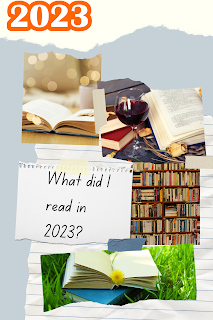
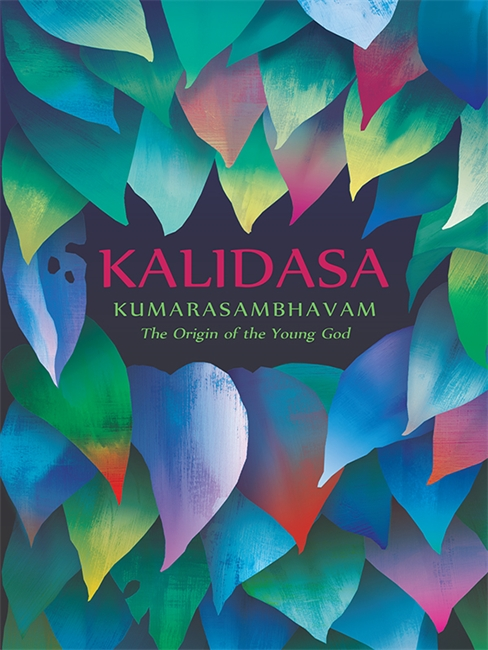


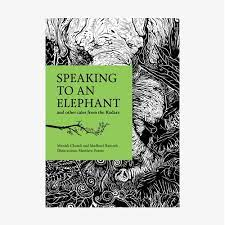
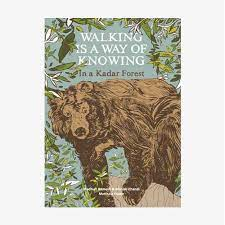





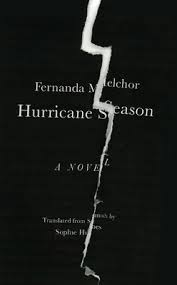
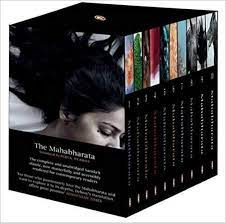





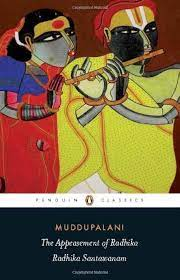



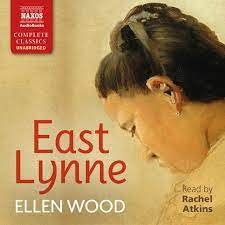



Comments